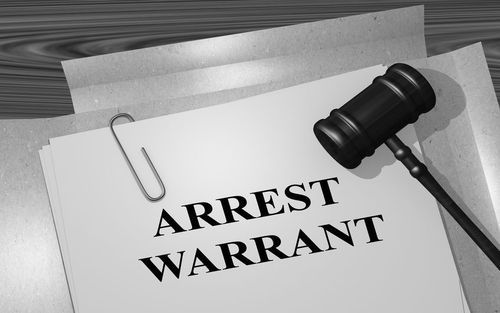Contributor: Adam Justinger
Fairly often, someone will call our office panicking because they have a warrant out for their arrest. The first thing I always tell them is to take a deep breath and calm down. At this point, you have already made a great decision to contact an attorney to help you with your arrest warrant. Usually, people are surprised by their arrest warrant because it may be from a long time ago or from an alleged incident where charges were not immediately brought. This often brings fear, frustration, nervousness, and a plethora of other emotions to the individual who just found out about the warrant. Once an individual becomes aware that they have a warrant out for their arrest, it is important to remember to stay calm, remain law-abiding, and contact us.
What Is An Arrest Warrant?
Under the North Dakota Rules of Criminal Procedure, there are two ways a court can make a person appear before the magistrate on criminal charges, by summons or by an arrest warrant. A magistrate may issue a summons instead of an arrest warrant to bring an individual before the court for criminal charges. A summons is issued to an individual charged with a crime and informs them that they must appear before the magistrate. However, if they do not appear, an arrest warrant must be issued.
So now you are probably thinking “I was never given the summons to appear before the court so how can I have a warrant out for my arrest?” The reason you have a warrant out for your arrest is likely because the magistrate has the option of issuing either a summons or an arrest warrant. If the magistrate chooses to not issues a summons, they will issue an arrest warrant. When issuing an arrest warrant, the magistrate must review the complaint, an affidavit filed with the complaint, or a written declaration made and subscribed under penalty of perjury by a licensed peace officer. If after reviewing the document, the magistrate determines there is probable cause to believe that a criminal offense has been committed, they must issue an arrest warrant to an officer authorized by law to execute it. The magistrate must make the probable cause determination based on the evidence presented. This evidence can even include hearsay, which is normally not admissible in court unless an exception applies (hearsay and its exceptions are for a different blog).
If a magistrate issues a warrant for your arrest, and you are stopped by law enforcement, you will be arrested. Whether it’s for a traffic infraction like speeding or a tint violation; or a criminal offense, the officer can execute the arrest warrant. Thus, if you have a warrant out for your arrest, it is imperative to contact a criminal defense attorney and remain law-abiding.
How Do You Get Rid Of An Arrest Warrant?
If you have an arrest warrant, it is in your best interest to contact a criminal defense attorney immediately. If you contact an attorney, there are several ways an arrest warrant can be quashed (removed). One way an attorney can quash your arrest warrant is by contacting the County Sheriff’s office and setting the matter for an initial appearance. Although it may appear that a warrant is still out for your arrest, it may not be an active warrant. This means that if you are stopped for a minor traffic infraction, you are not likely to be arrested. Another way an attorney can quash a warrant is by filing a motion with the court to remove the warrant for your arrest and set the matter for a hearing. This can be used in several situations such as when a defendant lives out of state who cannot appear in court immediately. However, it is important to realize that a judge can deny the motion. If that is the case, the only way to quash the warrant is to come to the state and go before the magistrate.
Once you are brought before a magistrate, the court will decide your bond amount. This is for both felony or misdemeanor cases. The hearing that your bond is decided is called an initial appearance. Although the hearings are called the same name, they are different depending on the severity of your crime. For a felony offense, the judge will inform you of the charges you are facing and your rights. After you are informed, they will set your bail amount after taking a recommendation from the State and argument from the defendant (or their counsel). Once this is set, if you can post bail, you will be released. If this is for a misdemeanor charge, the judge will inform you of the charges you face, your rights, and ask you for a plea of guilty or not guilty. If you plead not guilty, the judge will issue your bail in the same manner discussed above. After your initial appearance, your arrest warrant will be quashed.
In Conclusion
Arrest warrants can be complex, and seeking legal representation may be in your best interest. If you have a criminal issue in North Dakota, please do not hesitate to call our Criminal Defense Team at SW&L Attorneys in Fargo at 701-297-2890.
This article is only meant to provide general information and does not constitute legal advice.










